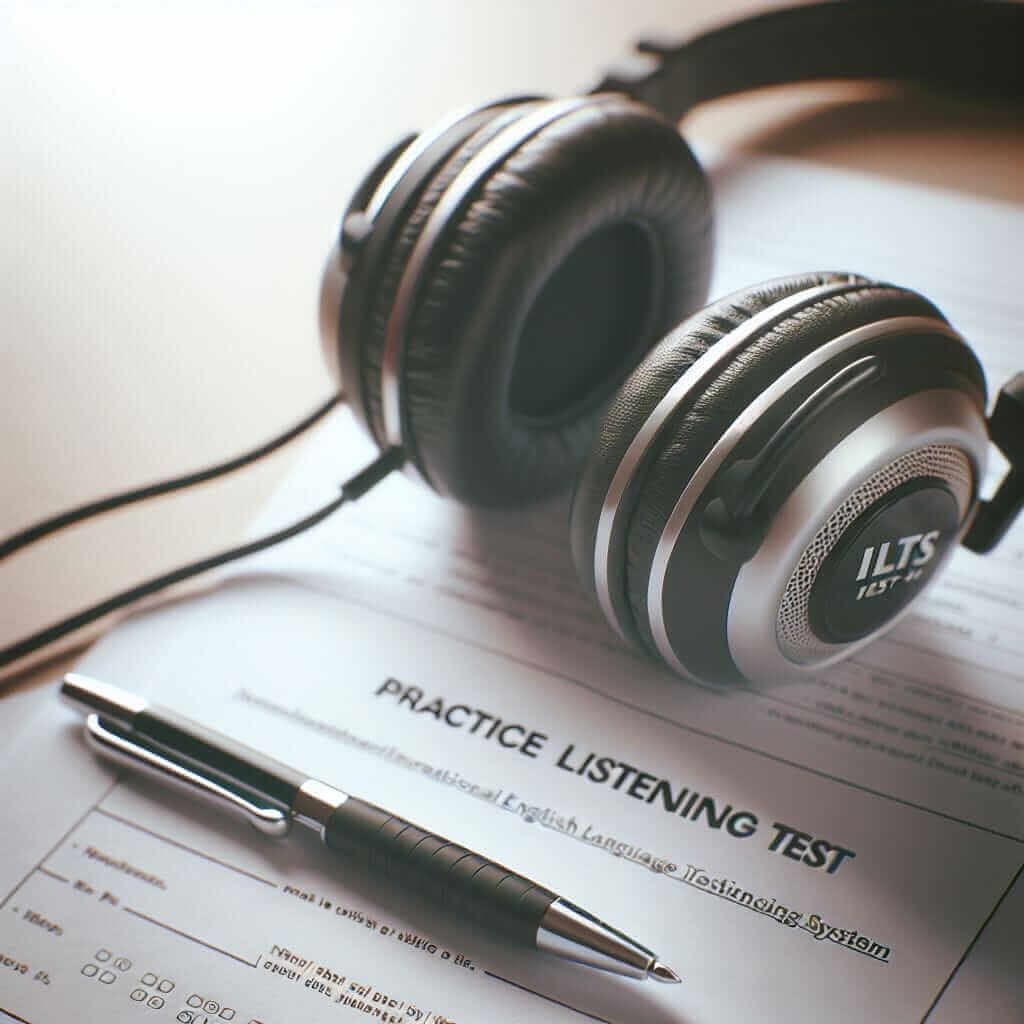The IELTS Listening test can be a challenging part of the exam, even for those who consider themselves to be good listeners. Often, it’s not about understanding English itself, but about recognizing specific information under pressure.
Knowing the common mistakes beforehand can give you an edge in your IELTS preparation. This article will delve into those pitfalls and provide you with strategies to avoid them, helping you ace the IELTS Listening test.
Understanding the Traps: Common IELTS Listening Mistakes
Here are some of the most common mistakes IELTS test-takers make in the Listening section:
1. Losing Track of the Audio
The IELTS Listening test plays the recording only once. It’s easy to lose track, especially if the topic becomes complex or unfamiliar.
Example:
Imagine a section describing a museum’s layout. If you miss the directions like “turn left at the dinosaur exhibit,” you might misunderstand subsequent information.
How to Avoid:
- Focus: Practice active listening. Concentrate on the speaker’s tone, keywords, and transitions.
- Keywords: Underline keywords in the questions beforehand. This helps you anticipate what information to listen for.
2. Misinterpreting Instructions
Misreading or misinterpreting instructions can lead to incorrect answers, even if you understand the audio.
Example:
The instruction might say, “Choose TWO letters,” but in your haste, you only select one.
How to Avoid:
- Read Carefully: Spend those precious seconds before each section meticulously reading and understanding the instructions.
- Underline: Highlight key instructions like “two words,” “no more than three words,” etc.
3. Focusing on Every Word
Trying to understand every single word can be counterproductive. You might miss the overall meaning.
Example:
You get stuck on the word “archaeological” in a lecture about ancient civilizations. While trying to understand this specific word, you miss the main point the speaker is making.
How to Avoid:
- Main Ideas: Concentrate on grasping the gist of the conversation or lecture.
- Don’t Panic: If you miss a word, don’t dwell on it. Move on and focus on the overall context.
4. Ignoring Synonyms and Paraphrasing
The recording will rarely use the exact words as the questions.
Example:
The question asks about “student accommodation,” but the speaker refers to “housing options for those enrolled at the university.”
How to Avoid:
- Expand Vocabulary: Work on understanding synonyms and paraphrases.
- Practice: Look for examples of paraphrasing in IELTS practice tests.
5. Poor Spelling and Grammar
Even if you understand the audio and know the answer, spelling mistakes can cost you points.
Example:
You hear “library,” but you write “libary.”
How to Avoid:
- Review Spelling: Pay attention to spelling throughout your IELTS preparation.
- Double-Check: Always leave time at the end of each section to review your answers for spelling and grammar errors.
Putting it into Practice: IELTS Listening Scenarios
Let’s analyze how these mistakes might manifest in real IELTS Listening scenarios:
Scenario 1: Map Completion
You need to label a map of a university campus based on a conversation. You miss the instruction “You now have 30 seconds to look at the map,” and the recording starts while you’re still reading the questions.
Scenario 2: Multiple Choice
The speaker discusses different theories about the extinction of dinosaurs. While trying to understand every detail of each theory, you miss the speaker’s final conclusion about the most likely cause.
Scenario 3: Sentence Completion
The sentence is “The museum’s new exhibit showcases artifacts from __ .” The speaker mentions, “The artifacts, originating from the Byzantine period, are the highlight of our new exhibit.” You write “Byzantine period” instead of “the Byzantine period,” missing the crucial article.

Strategies for Success: How to Ace the Listening Test
- Active Listening: Engage fully with the audio. Don’t just passively hear it; try to understand the speaker’s intent and the flow of information.
- Practice Regularly: Familiarize yourself with the various accents and speaking styles used in the IELTS test by practicing with real IELTS past papers.
- Mock Tests: Simulate the test environment by taking timed mock tests. This will help you build your stamina and manage test anxiety.
- Vocabulary Enhancement: A strong vocabulary is essential for understanding the audio and identifying synonyms. Make a habit of learning new words regularly.
Conclusion: Listen Carefully, Practice Consistently
The IELTS Listening test assesses not only your English comprehension but also your ability to focus and extract key information. By understanding the common pitfalls and implementing the strategies outlined in this article, you can significantly improve your chances of achieving a high score. Remember, consistent practice and focused listening are the keys to unlocking success in the IELTS Listening test.